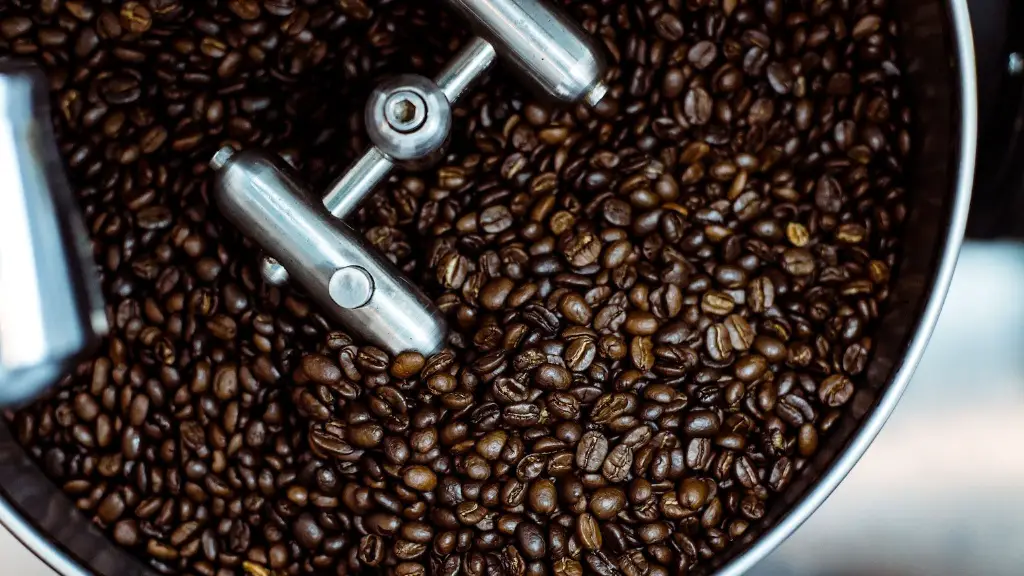Elements of Coffee Consumption Causing Stomach Pain
Coffee has been a staple for centuries, but for many people, the morning cup can cause stomach pain. Coffee is made from the roasted bean of the coffee plant and contains high concentrations of caffeine and other compounds that can be corrosive to the stomach lining. It is important to understand why drinking coffee can cause stomach pain and what can be done to reduce its effects.
Coffee Altering Stomach Environment
Coffee has the potential to chemically alter the stomach’s environment. Acidity in coffee can cause the stomach to produce more hydrochloric acid, leading to stomach cramps, pain, and inflammation. The caffeine itself can irritate the stomach, accelerating the production of gastrin, and potentially causing ulcers and stomach pains. Coffee can also relax the esophageal sphincter, allowing stomach acid to enter the esophagus and causing a burning feeling.
Dehydration
Coffee can also cause dehydration. This is because the body’s response to the stimulant effects of caffeine is the production of adrenaline, which increases the heart rate and can result in gastrointestinal symptoms including stomach pain. As caffeine causes increased urination, the body loses precious water, leading to dehydration and stomach pain.
Coffee Consumption Habits
Introduced habits regarding coffee consumption are also important to consider. People who are used to consuming coffee on a daily basis may experience unexpected stomach pain if they increase their consumption beyond the usual amount. Those who consume coffee hastily or very hot can also experience discomfort due to the high temperatures directly affecting the stomach lining.
Factors Influencing Coffee Tolerance
Individual tolerance for coffee is also a key factor when considering stomach pain. People who are sensitive to stimulants and prone to acid reflux have a higher chance of experiencing discomfort when drinking coffee. Moreover, those who suffer from preexisting health issues, such as gastritis or ulcers, should be careful with their coffee consumption.
Caffeine Sensitivities
Caffeine sensitivity is a condition in which the body has difficulty metabolizing caffeine, leading to an accumulation of the stimulant in the body, which in turn can lead to a heightened sense of tension and anxiety, as well as gastrointestinal issues including stomach pain. As caffeine sensitivities can vary greatly from person to person, it is important to be aware of problems associated with overdosing on this stimulant including hot or cold sweats, headaches, nausea, and increased heart rate.
Altering Coffee Consumption
If someone experiences stomach pain after drinking coffee, there are steps that can be taken to reduce the discomfort. Choosing decaffeinated coffee over regular can help reduce symptoms. Apart from that, selecting milder roasts and consuming it at cooler temperatures can also help reduce stomach pain. Drinking coffee with food can help reduce the potential of the acid to damage the stomach lining and it may also be beneficial to consume coffee with a dairy product such as milk or creamer. Finally, limiting dose and duration can help reduce the likelihood of experiencing negative effects after consuming coffee.
Coffee Alternatives
If coffee still continues to cause discomfort after trying to modify consumption habits, drinking an alternative such as tea may be a viable solution. Tea is a natural product containing polyphenols, amino acids, and other bioactive compounds that offer health benefits. However, the concentrations of caffeine in brewed tea can vary significantly, and it is important to select caffeine-free teas such as herbal infusions. In addition, many alternative beverage options now exist, such as plant-based milks and sugar-free beverages, which are becoming increasingly popular.
Preventative Maintenance
As with any food and drink product, regular preventative maintenance is essential to avoid experiencing stomach pain from coffee consumption. Regular check-ups with a physician can help identify any potential problems that may be caused by drinking coffee and provide advice on how to enjoy coffee without discomfort. In addition, many coffee shops are now offering personalized drinks crafted with a few simple ingredients in order to meet their customers’ individual needs.
Mindful Consumption
Finally, mindful consumption is important when trying to reduce coffee related stomach pain. Maintaining adequate hydration levels and regular meal schedules is important to protect the stomach lining. If a person begins to experience stomach pain after consuming coffee, it is important to assess individual caffeine consumption and consider alternative options. With a bit of trial and error, it is possible to reduce or eliminate coffee-related stomach pain.


